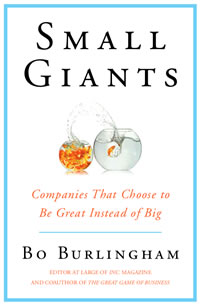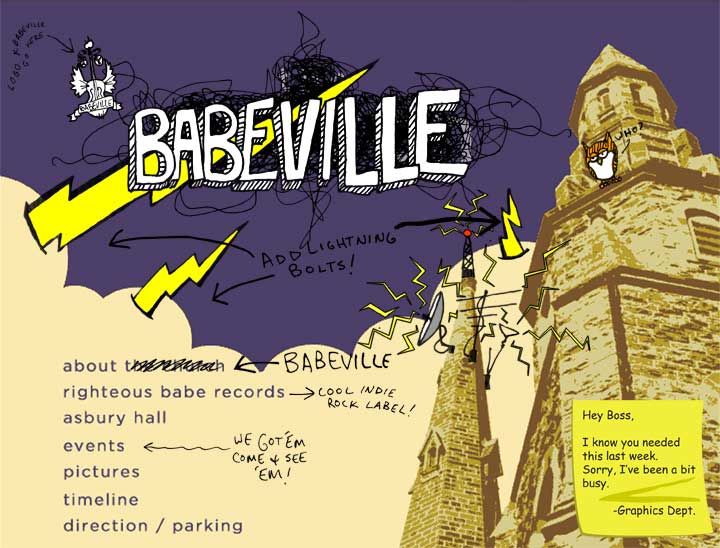I once read a critique of Atlas Shrugged that slammed Ayn Rand’s masterpiece for its unpolished prose. That’s like reading Emily Dickinson and wondering when the explosions will manifest. If you read Atlas Shrugged in search of flowery phrases, well you’re reading the wrong book there kemosabi. The book’s appeal is in the heroic treatment it gives the builders and entrepreneurs of an otherwise corroding civilization.
That’s right. Atlas Shrugged is a critically acclaimed work of fiction that celebrates business people. Shocking, right? I mean, everyone knows that business types are evil, don’t they? It’s so obvious.
Just look at movies like Erin Brokavich, The Verdict, Michael Clayton, The Rainmaker, Wall Street or the vast majority of pop culture that features business people. Even Lost, one of the most innovative television shows ever made, features an evil industrialist. Whoa, the industrialist is the bad guy? No way! Didn’t see that one coming, guys!
Maybe I’m missing an obvious reference, but prior to Atlas Shrugged, I think we’d have to go all the way back to a book like Victor Hugo’s Les Misérables to see a similarly heroic take on the entrepreneur.
As a quick reminder, Les Mis begins as Jean Valjean, a former convict, steals silverware from a kind bishop. After the bishop discovers the crime, he graciously allows Jean Valjean to escape another prison term. In exchange, the bishop asks Jean Valjean to promise that he will live an honest life from this point onward.
The narrative skips ahead a few years, revealing that Jean Valjean has indeed kept his promise. He has become respectable and made his town wealthy thanks to a new manufacturing process he invented for his factory.
Back in Victor Hugo’s time, folks actually appreciated those who brought jobs and wealth to their towns. That’s probably why Hugo uses Jean Valjean’s business accomplishments to suggest that he’s become a model citizen. In contrast, today we gather up our collective pitchforks to hunt business people as if they were freakish monsters worthy of death or at least heavy regulation. With attitudes like that, is it any wonder that the U.S. has the second-highest tax rate in the world?
That anti-business animosity is present even in Atlas Shrugged, and Hank Rearden, one of the heroic entrepreneurs in the novel, struggles to overcome it. He’s a businessman who has figured out a way to make a metal that is stronger than steel, and he puts all of his energies into building a great company that manufactures his new material. His competitors cannot deliver anything of comparable quality, so instead they pay off government bureaucrats and give lots of speeches.
Since we’re on the subject, I do admire great orators as much as the next guy, but I’m more impressed when speakers prove themselves to be people of action.
Speech-minded reader, you could do worse than following Teddy Roosevelt’s example. He too gave speeches, but his speeches were not the sum total of his efforts. They were merely the structural supports. It’s why he could boldly admonish his listeners to “speak softly and carry a big stick.”
Anyway, many people in Rearden’s society have come to feel entitled to the profits of his business, even though they have done nothing to help it grow. Ayn Rand calls them the looters, a ravenous mob not unlike a zombie horde. Seeing an opportunity to expand power, the government satiates the looters by raising taxes and placing more onerous restraints on Rearden and industrialists like him.
Rearden’s competitors use their government contacts to negotiate loopholes for themselves. That’s Ayn Rand’s way of acknowledging that businesses are not immune to corruption, but that big government tends to enable rather than curtail it.
Cruelty in Perfection – William Hogarth, 1751
break
As the novel progresses the government bureaucracy becomes more intrusive and many entrepreneurs decide that it is no longer beneficial to stay in business. Rearden tries to stay afloat, but as the government takes over more industries it becomes increasingly more difficult to do so.
From the beginning, the novel’s speechmongers had clamored for more government control, but contrary to their utopian claims, society does not improve. Since no one has an incentive to work hard, the workers opt to do the bare minimum or to drop out of the system altogether. Gone is the potential to profit from manufacturing parts or excellent service, so machinery deteriorates and accidents increase.
As the general population becomes more apathetic, the government realizes that it must use force upon its own people to compel them to work. The doom of civilization lingers, but a few resourceful entrepreneurs like Rearden mount the resistance.
Atlas Shrugged was published back in 1957, but it feels so contemporary: In our world, entire nations and politically connected corporations ask others to finance their profligacy insisting that they’re too big to fail. Our American government comes down hard on businesses, except those who have contributed heavily to certain political campaigns. For example, one of Obama’s biggest campaign contributors was Goldman Sachs, a company that did quite well in the subprime-mortgage dustup.
Let’s not forget that the S&P recently downgraded the U.S. credit rating. That didn’t even happen in the Great Depression ladies and gentlemen, and the very politicians who spend our money at unprecedented rates look us in the eyes and tell us that the government is not the problem.
Simon Fraser, 11th Lord Lovat – William Hogarth, 1746
break
The problem, as they see it, stems from the people who protest the government’s encroaching appetite. Indeed Ayn Rand has become a prophet of our times.
Now please don’t misunderstand. My goal in writing is not to suggest that businesses can do no wrong. On the contrary, businesses are run by people, and people come in all sorts of varieties, some good some bad. If we agree that proper governance helps sustain society, then it follows that some limited government oversight in business can also be useful.
Not every Ayn Rand enthusiast would agree with those presuppositions, so allow me to defend them by quoting from Thomas Paine’s Common Sense, an influential pamphlet during the American Revolution.
Paine writes,”For were the impulses of conscience clear, uniform, and irresistibly obeyed, man would need no other lawgiver.” In other words, if we were all perfect we wouldn’t need government; We would naturally live in harmony with each other.
Since that is not the case, we need a system of laws to preserve the social fabric that allows for civilization. Businesses too need some regulation to ensure fair play, to prevent unethical business types from doing anything to make a quick buck.
Besides, without even the most limited amount of regulation, porn shops and drug dealers would be everywhere. Do you really want to live in that kind of society? I don’t.
With that said, we need to get rid of this harmful notion that every societal problem is due to the nefarious machinations of conniving, greedy businessmen. By and large, successful businesses make things better, not just for the stockholders and their employees but also for their customers and their communities at large.
If they didn’t, why would people continue to work and buy from them? Remember, businesses don’t have standing armies to coerce participation. Governments do.
Then there’s the whole notion of being able to advance based on merit. We take that for granted, but it wasn’t always a given.
Imagine what it would be like if your status was almost entirely dependent upon the family to whom you were born or to which you joined in marriage.
Not so keen on the medieval way? You could always live la vida loca like the Soviets did, by bribing government officials just to increase your odds of survival. I’d say the oft-maligned businessman is starting to look downright friendly in comparison.
You wouldn’t know it from popular culture, but a lot of folks actually have strong affectionate feelings toward businesses. I’m one of them.
Working for Canon has expanded my technical abilities, increased my confidence, and brought more stability to my life. No charitable outreach has done the same for me.
Plus, Canon equipment is among the best in the market. All my recent freelance projects have been shot with Canon gear, and I wouldn’t go that route if I didn’t have the highest respect for Canon engineering.
Don’t just take my word for it though. Visit Canon USA’s Facebook page, and you’ll notice that the vast majority of comments are positive, effusive ones. But why stop at Canon? You’ll find similar things if you check out the feedback for companies like Apple, amazon.com, IKEA, Chick-fil-A, Volkswagen, Target, Whole Foods, Starbucks, Zappos, Walt Disney, and the list could go on and on.
These are all businesses that have made life better for millions of people, and you don’t make life better for millions of people by merely focusing on profit. That is a foolish anti-business fallacy. You get there, first and foremost, by being useful, even delightful, to others in an excellent way.
In Atlas Shrugged, it is the bureaucrats who compromise and sell out to advance themselves. Rearden, in contrast, sacrifices prestige and short-term wealth so that he might produce something truly exceptional. To aim for anything less even when the entire world encourages you to do so is not to be fully alive, Ayn Rand suggests.
Like Hank Rearden, the entrepreneurs who produce excellent, profitable businesses are heroes of our modern world, but when was the last time a movie, a music album, or a novel conveyed as much? Atlas Shrugged is one example, but we need more.
In the book Microtrends, author and researcher Mark Penn tells of a recent survey he ran where an alarming number of kids expressed interest in becoming snipers when they grow up. He speculates that data spike is due to the attention snipers get in news coverage, movies, and video games.
Now you tell me, would you rather have a society full of aspiring snipers or entrepreneurs? Do you want your next creative project to inspire the next Columbine shooter or the next Steve Jobs?
The Delivery of the Keys – Pietro Perugino 1481–1482
break
If you chose the latter options, then maybe it is time for you do something about it. Reading Atlas Shrugged is a good place to start (you can listen to it as an audiobook if you prefer), but if you don’t have time for that, would you at least stop suggesting that every business person is evil? Can you stop relying on the government to solve all your problems?
While you’re at it, don’t be content just to consume. Produce. Give back. Building a great and virtuous business is as good of a way as any to do that.
If you appreciate my writing, why not write a comment or share the post with a friend? It would encourage me to keep writing and sharing bits of my heart with you.

















